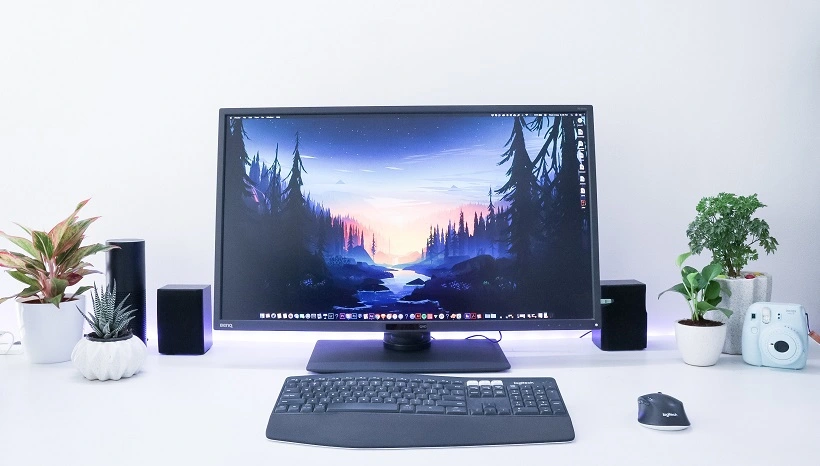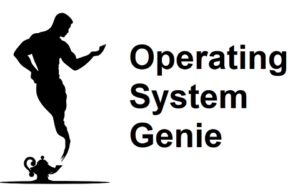Operating systems like Windows 7, and Windows 10 were created based on the current computer hardware that was available.
Every few years a new version of Windows is released based on the performance of computers at the time.
Today, I will cover whether Windows 7 is better for performance than Windows 10.
As a general rule, Windows 7 is better than Windows 10 for performance. Independent tests have shown that Windows 7 is, on average, 30% faster than Windows 10. However, on higher end computers, there is no noticeable difference, and Windows 10 is a better option.
The main reason that Windows 10 is better on a high end computer or a computer with average specification is the user interface looks a lot better.
Therefore, the very minor performance improvements aren’t worth it.
Below, I will provide the details of independent tests performed that compared the performance of Windows 7 and Windows 10, and how it varies based on how fast or slow your computer is.
How Much Better Is Windows 7 Than Windows 10 for Performance

There are a few components that affect how fast a computer is, these are the RAM, the processor, and for some programs the graphics card.
Overall, Windows 7 is 30% faster than Windows 10. This is based on independent tests that measured how much faster Windows 7 is compared to Windows 10 for booting up, opening a web browser, opening a program, installing a program, and shutting down.
There are minimum specifications for a computer to run Windows 7 and Windows 10, that are recommended by Microsoft.
Interestingly, these are virtually the same. Here’s a table that shows a side by side comparison of the recommended specs:
| Component | Windows 7 | Windows 10 |
| Processor (CPU) | 1GHz or faster | 1GHz or faster |
| RAM | 1GB for 32 bit, 2GB for 64 bit | 1GB for 32 bit, 2GB for 64 bit |
| Hard drive space | 16GB for 32 bit, 20GB for 64 bit | 16GB for 32 bit, 20GB for 64 bit |
As you can see from the table, the minimum system requirements to run Windows 7 or Windows 10 are exactly the same.
However, there have been some tests that have identified how good the minimum system requirements are.
They have shown that 8GB is the minimum RAM to have a good user experience on Windows 10. Such as in this video by Linus Tech Tips.
by Linus Tech Tips.
Anything less than that and it will be a bit slow. Slow enough that it will be a bit frustrating to use. The good news is RAM is very inexpensive. It costs on average $30 for 2GB.
However, if you want a much smoother, faster computer then Windows 7 is definitely the way to go. Here’s a table that shows how fast Windows 7 is compared to Windows 10.
| Computer process | How much faster or slower Windows 7 is |
| Starting up (booting up) | 9.08% faster |
| Opening a Internet Explorer | -647.08% slower |
| Opening Google Chrome | 40.00% faster |
| Opening Firefox | -9.72% slower |
| Installing a program | 51.06% faster |
| Opening File Explorer | 84.85% faster |
| Shutting down | 50.40% faster |
| Average | 37.61% faster |
I’ve included an average at the very end of the table. However, for the average I removed how much slower it is at opening Internet Explorer.
The reason is it would make the average not quite right. Because it’s common to use another internet browser other than Internet Explorer.
And interestingly, Google Chrome is the most used web browser. And about 65% of people use Google Chrome (source ).
).
There’s no difference between Windows 7 and 10 for high end PCs
On a medium to high end PC, Windows 10 is smooth and fast enough. If your computer has 8GB of RAM or more, there will be a noticeable difference between Windows 7 and Windows 10.
But, Windows 10 is smooth and fast enough that you won’t want to use Windows 7 instead.
Virtually everyone would agree that the user interface on Windows 10 looks better than Windows 7.
It looks more sleek, and modern. Therefore, it’s best to have Windows 10 if your computer is fast enough to run it. While Windows 7 doesn’t look BAD, in my opinion the performance improvements aren’t worth it for any computer above 8GB of RAM.
Is Windows 7 Better for Older Computers
Older computers in general have slower computer components compared to newer computers.
Operating systems have a different user interface, but it’s difficult to know if one is faster than the other. So, here’s a summary of whether Windows 7 is better for older computers.
Overall, Windows 7 is better for older computers than other versions of Windows. Independent speed tests have found that Windows 7 is an average of 20.61% faster than the other versions of Windows such as Windows 10, and Windows 11. Windows VIsta, or XP are the best for old computers.
Lower end computers have a slower processor, less RAM, and often don’t have a dedicated graphics card. All of these mean, a lower end computer takes more time to load.
Therefore, Windows 7 is the best operating system to install on a lower end PC. All of the most popular programs can be downloaded for it, including modern games, and it offers a significant performance improvement over other versions of Windows.
Here’s a table that shows the total time it takes to load, for all the tests performed, such as opening a program, installing a program, and starting up when the power button is pressed:
| Version of Windows | Total time for each of the processes tested |
| Windows 8 | 01:52:00 |
| Windows 11 | 02:01:25 |
| Windows Vista | 02:14:00 |
| Windows XP | 02:27.75 |
| Windows 7 | 02:58:75 |
| Windows 10 | 03:52:25 |
Interestingly, Windows 8 was the fastest, followed by Windows 11, Vista, XP, and then Windows 7.
In between Windows 7 and Windows 10 was Windows 8. However, it was never very popular, and people preferred to use Windows 7 (source ).
).
This was largely because they took away the start menu which most people didn’t like. Therefore, it’s safe to say you can disregard Windows 8, and it’s never worth installing, even for low end PCs.
Does Windows 10 Make a Computer Slower
Computers vary in how fast or slow they are. Typically, newer computers are very fast and can run any operating system with ease.
But, for slower computers often an older version of Windows works the best. Here is if Windows 10 is a good operating system to use, and if it makes your computer slower.
As a general rule, Windows 10 does make a computer slower. Multiple tests have shown that Windows 10 has slower performance across many different computer uses such as installing a program, starting up, and opening a web browser, and loading a webpage.
It’s commonly believed that over time an operating system gets slower. After a year or so, you can get a performance boost by uninstalling and reinstalling Windows again.
The one downside is you need to back up any files you want to keep.
Generally, it’s best to choose the fastest version of Windows but the version that also is as new as possible.
For virtually all old computers Windows 7 is the best, and for newer 64 bit computers Windows 10 or 11 is the best.
